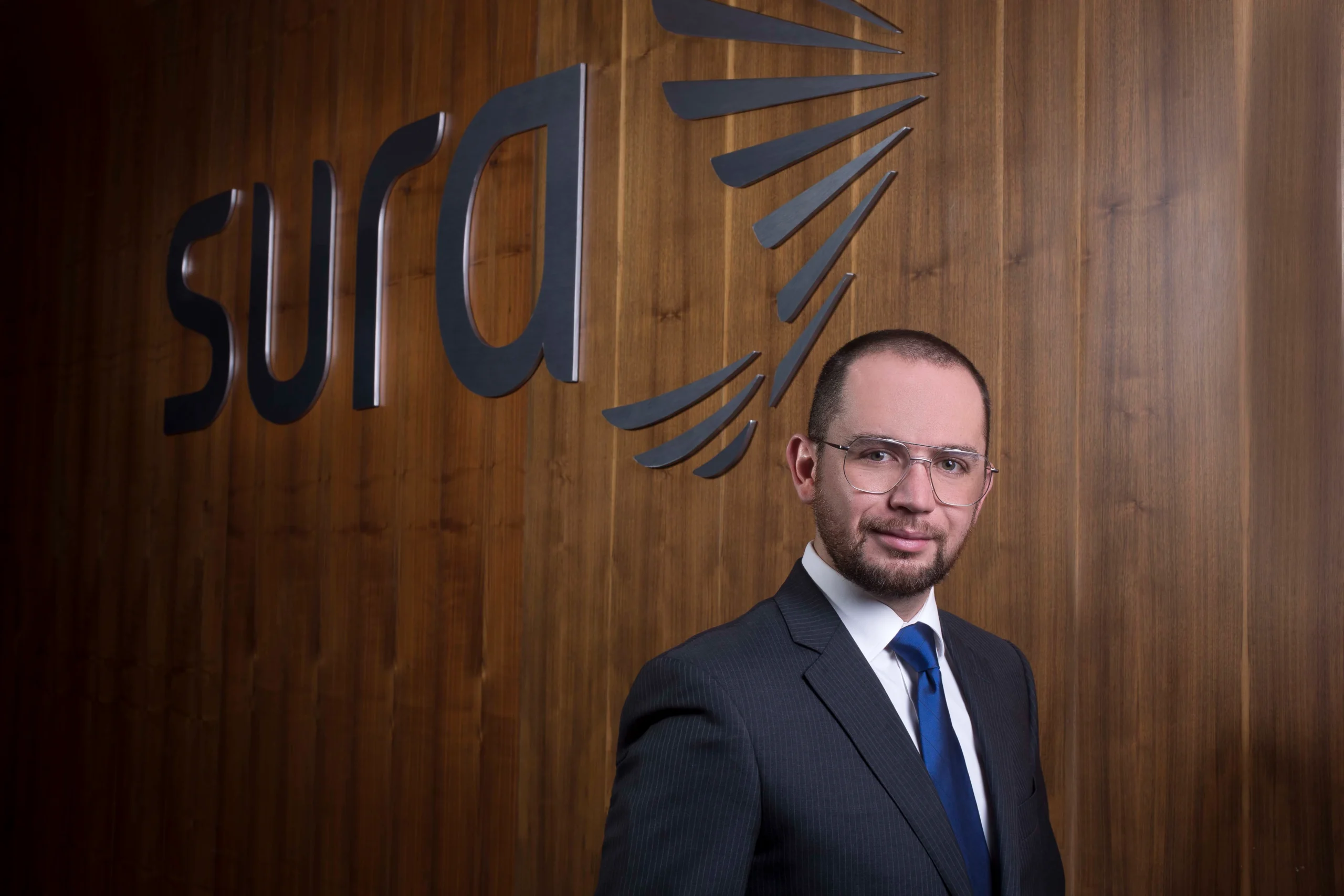United we stand

John E. Kaye
- Published
- Banking & Finance, Home

We can emerge stronger from the health crisis if we help businesses big and small engage with the global investment community, says Sergio Segovia, President of Apex-Brasil
The conditions in 2020 could hardly have been more challenging for foreign direct investment (FDI). But as the global health emergency and economic crisis have unravelled, and businesses, investors, and governments have raced to keep up with the breathless pace of change, investment promotion agencies (IPAs) have played an increasingly vital role.
UNCTAD’s latest report on global FDI volumes is a stark reminder of just how disruptive Covid-19 has been to international economic activity. Global FDI flows fell by up to 42% last year, and while the outlook is tentatively improving, the threat of an economic long-Covid is never far from investors’ minds. Nevertheless, as jarring as those figures first appear, they do also reveal that there is still a lot of interest worldwide in pursuing the right FDI opportunities, and that investment activity, while reduced, will continue.
At the Brazilian Trade and Investment Promotion Agency (Apex-Brasil) we have seen investor sentiment shift in the direction one would expect. Most are now seeking investments with a lower risk profile and greater probability of a long-term return. Just as financial markets are known to flock to gold in times of economic turbulence, we now see institutional investors searching for smarter investments in growth economies with a far stronger long-term outlook.
In Brazil those projects are currently plentiful; the economy rests on a secure foundation with a strong reputation among foreign investors. Indeed, it has been barely a year since Brazil, which receives $33bn in FDI, was named one of the world’s top destinations for FDI by UNCTAD.
New priorities
Around the world IPAs have had to rethink the way they work. More than three quarters (77%) of national IPAs worldwide have stepped forward to provide Covid-related information and services or developed specialised virtual tools and platforms over the past 12 months. All initiatives done in the face of constrained budgets and a shrinking pipeline of FDI projects.
With new trends establishing themselves, a greater emphasis must be placed on providing on-time intelligence to policymakers, business leaders and entrepreneurs, while maintaining foreign investors’ confidence in our respective markets during this period of heightened uncertainty. Furthermore, at a time when international travel is limited, and planning for the future is harder than ever, it has never been more important to maintain the bridges that have taken so long to build. It is vital that IPAs remain close to businesses, investor communities and key stakeholders in different sectors across the globe.
Just one example of how we’ve been doing this at Apex-Brasil is our Market Intelligence Report. We have also developed a tool that tracks different business indicators in the context of the current crisis. This interactive tracker allows both companies and public policymakers to accurately trace the influence of the crisis on various sectors of foreign trade and investment. Such proactive measures are key if we are to mitigate the impact of the economic downturn caused by the pandemic, create more market certainty, and stem the worrying tide of investor flight.
Another key resource which must be tapped into is the global dynamism of startup culture. For countries around the world supporting and securing the short-term prospects and operational capabilities of small and medium enterprises (SMEs) and startups during this crisis is critical to developing this key growth segment and diversifying economies in the long-term.
In Brazil almost $1bn of support funding has been earmarked specifically for micro-, small- and medium-sized enterprises (MSMEs), and the country has a business action plan to help Brazilian entrepreneurs and business leaders make informed, strategic decisions to navigate the crisis. This free, interactive plan includes a step-by-step guide for crisis management and proactive tips on how to protect finances. Tools to help small businesses, micro-entrepreneurs and start-ups develop resilience and rebuild will be vital as we continue to navigate the choppy waters of the crisis towards recovery.
Moving online
We like many others have had to rethink and massively ramp up our digital capabilities. We now regularly promote videoconferences, online round-tables, and other such webinars, connecting a wide cross-section of key stakeholders from Brazil and abroad. With the right planning, these can be no less engaging than in-person events, coming with a host of other benefits such as minimising air-miles and saving travel time. Our ‘Invest in Brazil Infrastructure’ virtual roundtable in July succeeded in gathering over 1,100 participants from 48 countries. Another event in June, the ‘Business Connections Brazil – Food and Beverage’, saw the participation of almost 500 local suppliers and foreign buyers from over 40 countries.
Companies, sectors and industries must pursue innovation and continue to invest in their digital capabilities in order to adapt to current and future challenges. As the rollout of vaccination programmes across the world offers a glimmer of hope for the future, ensuring businesses emerge from the crisis stronger than ever is now a top priority. That is why IPAs must continue to redouble their efforts to help entrepreneurs, start-ups and business leaders engage with the global investment community and arise even stronger and more resilient once this crisis passes.
Further information
RECENT ARTICLES
-
 Managing cross-border risks in B2B e-commerce
Managing cross-border risks in B2B e-commerce -
 J.P. Morgan launches first tokenised money market fund on public blockchain
J.P. Morgan launches first tokenised money market fund on public blockchain -
 Aberdeen agrees to take over management of £1.5bn in closed-end funds from MFS
Aberdeen agrees to take over management of £1.5bn in closed-end funds from MFS -
 Enterprise asset management market forecast to more than double by 2035
Enterprise asset management market forecast to more than double by 2035 -
 EU Chamber records highest number of entries for 2025 China Sustainable Business Awards
EU Chamber records highest number of entries for 2025 China Sustainable Business Awards -
 Inside Liechtenstein’s strategy for a tighter, more demanding financial era
Inside Liechtenstein’s strategy for a tighter, more demanding financial era -
 ‘Stability, scale and strategy’: Christoph Reich on Liechtenstein’s evolving financial centre
‘Stability, scale and strategy’: Christoph Reich on Liechtenstein’s evolving financial centre -
 Bridging tradition and transformation: Brigitte Haas on leading Liechtenstein into a new era
Bridging tradition and transformation: Brigitte Haas on leading Liechtenstein into a new era -
 Liechtenstein in the Spotlight
Liechtenstein in the Spotlight -
 Fiduciary responsibility in the balance between stability and global dynamics
Fiduciary responsibility in the balance between stability and global dynamics -
 Neue Bank’s CEO on stability, discipline and long-term private banking
Neue Bank’s CEO on stability, discipline and long-term private banking -
 Research highlights rise of 'solopreneurs' as technology reshapes small business ownership
Research highlights rise of 'solopreneurs' as technology reshapes small business ownership -
 Philipp Kieber on legacy, leadership and continuity at Interadvice Anstalt
Philipp Kieber on legacy, leadership and continuity at Interadvice Anstalt -
 Building global-ready funds: how South African managers are scaling through offshore platforms
Building global-ready funds: how South African managers are scaling through offshore platforms -
 Global billionaire wealth hits record as relocation and inheritance accelerate, UBS finds
Global billionaire wealth hits record as relocation and inheritance accelerate, UBS finds -
 Human resources at the centre of organisational transformation
Human resources at the centre of organisational transformation -
 Liechtenstein lands AAA rating again as PM hails “exceptional stability”
Liechtenstein lands AAA rating again as PM hails “exceptional stability” -
 Lusaka Securities Exchange surges ahead on reform momentum
Lusaka Securities Exchange surges ahead on reform momentum -
 PROMEA leads with ESG, technology and trust in a changing Swiss market
PROMEA leads with ESG, technology and trust in a changing Swiss market -
 Why collective action matters for pensions and the planet
Why collective action matters for pensions and the planet -
 Structuring success with Moore Stephens Jersey
Structuring success with Moore Stephens Jersey -
 PIM Capital sets new standards in cross-jurisdiction fund solutions
PIM Capital sets new standards in cross-jurisdiction fund solutions -
 Innovation, advisory and growth: Banchile Inversiones in 2024
Innovation, advisory and growth: Banchile Inversiones in 2024 -
 Digitalization, financial inclusion, and a new era of banking services: Uzbekistan’s road to WTO membership
Digitalization, financial inclusion, and a new era of banking services: Uzbekistan’s road to WTO membership -
 Fermi America secures $350m in financing led by Macquarie Group
Fermi America secures $350m in financing led by Macquarie Group



























